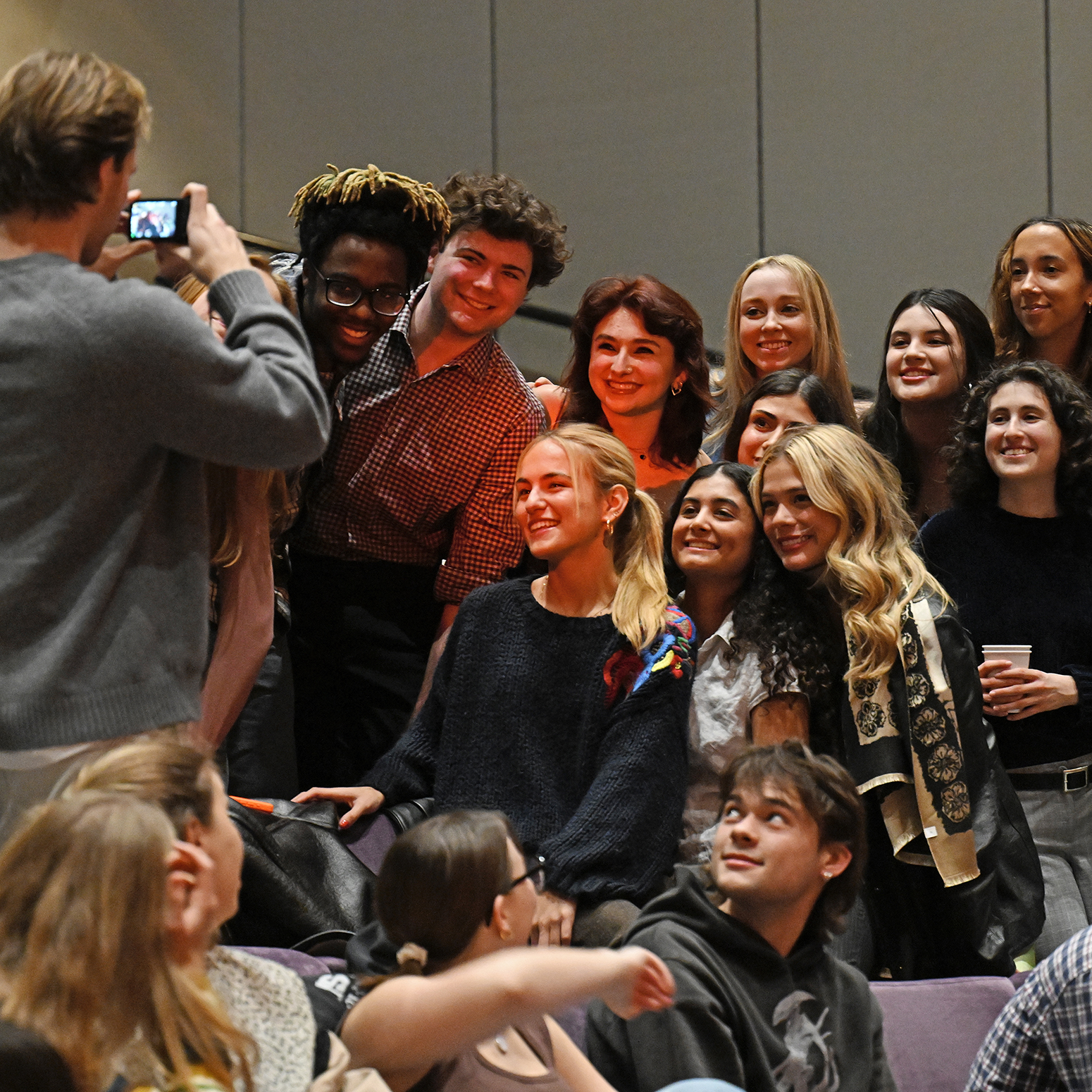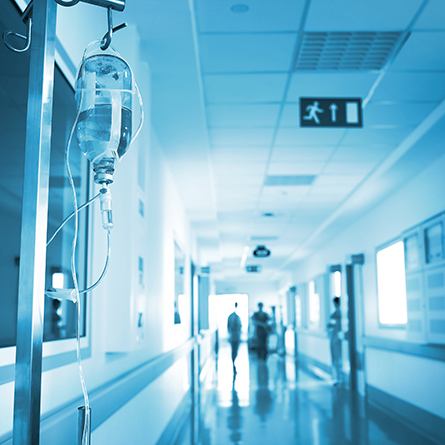
Conn alumni on the front lines of COVID-19
In his 23 years in emergency medicine, Dr. Donald Pasquarello ’86 has never seen anything like COVID-19.
“I was in training when HIV surfaced, and it was scary because we didn’t know much about the virus, we just knew people were dying. When Ebola surfaced in the U.S., I think that was a wakeup call for people, but an epidemic never materialized. COVID-19 is different, because it’s so contagious and can be spread by people with minimal to no symptoms,” he said.
Pasquarello is an emergency medicine physician at Beverly Hospital, about 20 miles north of Boston, in Beverly, Massachusetts. To prepare for an influx of COVID-19 patients, the hospital split its Emergency Department into zones—one for patients without respiratory symptoms and an isolated zone for people with COVID-19 symptoms.
“As this has progressed, the isolated side of the Emergency Department is getting bigger and bigger,” Pasquarello said, adding that the hospital's regular volume of patients has dropped off significantly. “That, in part, is attributed to the stay-at-home orders,” he said. “We are seeing fewer traumatic injuries, like broken bones and motor vehicle accidents, and I think more and more people are afraid to come to the hospital, afraid they might be exposed and contract the virus.”
Pasquarello said it’s been an adjustment to wear personal protective equipment (PPE) at all times, and that the hospital has implemented other policies and procedures in an effort to keep hospital staff healthy and prevent the spread of the highly contagious virus.
“Everybody who is working on the front lines is concerned about contracting this virus and bringing it home to our families,” he said. “We see the worst of it, because most people who are coming to the hospital are very sick. You think about it, but at the end of the day, you go to work and you do your job.
“We do the best we can to stay safe and take care of our patients.”
As a volunteer in the Emergency Department at Los Angeles County + USC Medical Center in Los Angeles, California, Dylan Pinckert ’18 says it is part of his job to make sure doctors and nurses have the PPE and tools they need to treat COVID-19 patients.
“I have to pay special attention to our supplies, and I also have to pay special attention to each new patient who comes in, because we never know if they have been exposed,” said Pinckert, who plans to become a physician’s assistant and is in the process of getting his EMT license recertified.
Pinckert says the number of COVID-19 patients in the hospital has been steadily increasing, and it’s been interesting to see the range of symptoms and severity in each case.
“I assisted with two COVID-19 patients on totally different sides of the spectrum,” he said. “One, a female in her 50s, was suffering from severe respiratory distress and coughing violently. The other was a male in his 30s and you would not have been able to tell if he had COVID-19 without testing him,” he said.
Pinckert added that while “the worry is always there” that he’ll be exposed, he takes seriously the mission of the hospital—one of the largest public hospitals in the country—to provide all patients with top quality care regardless of their insurance status or ability to pay.
“Since the pandemic, the number of volunteers is a quarter of what it was. The department relies on us for help,” he said.
In addition to working directly with patients, Conn alumni are helping address the pandemic in other ways.
Susan Guillet ’94 is director of clinical operations oncology at Gilead Sciences, the pharmaceutical company that produces Remdesivir, an antiviral that has the potential to become a therapeutic for treating patients with Covid-19.
Guillet normally oversees clinical trials in oncology, but remdesivir has shown promise as a possible therapeutic, so the company, along with the National Institutes of Health, among others, and researchers in Wuhan, China, where the outbreak is believed to have originated, are performing multiple clinical trials.
“We are pulling all hands on deck, because we want to process as many requests for the drug as possible. We don’t want to turn anyone down,” she said.
Charles Griffiths ’84 is the president of Vigilant, a Dover, New Hampshire-based fine cabinetry, furnishings and mill-working company that specializes in custom wine storage and cigar humidor cabinets. Deemed an essential business, the company is still operating, but has also devoted staff and resources to produce face shields with a design approved by the NIH.
“Our goal is 10,000 face shields for first responders and front-line healthcare workers in central New England,” said Griffiths.
To make the shields, Vigilant’s engineers remodeled a crowd-sourced prototype of a face shield crown for the company’s CNC machinery, which operates similar to a 3D printer, processing a piece of material based on computer programmed instructions. Griffiths has been working nearly around the clock to procure the rest of the supplies, including buckles, elastic bands and plastic sheets, while the company’s staff members work to assemble the shields.
“We’ve got employees staying late to help, employees bringing things home at night to put these things together,” he said.
Last week, the company shipped the first 1,000 masks to New Hampshire’s Stafford County to be used in nursing homes. The next batch will go to two local fire departments. The company is also sharing their CNC files and making videos of their process to encourage other manufacturing businesses to get involved, too.
“We are doing this to help the people who are risking their lives every day,” Griffiths said. “It’s just the right thing to do.”
While alumni work to address the public health crisis, Conn’s students are also working on the front lines as EMTs and firefighters, while others are preparing to address future pandemics and public health crises as scholars in the College’s Public Health Pathway. Part of Connections, the College’s reinvention of the liberal arts, the Public Health Pathway is designed to educate students to explore current local and global health issues, with a focus on health disparities in the U.S.
“The Public Health Pathway curriculum prepares students to work in the field of public health and to take public health perspectives into their careers in economics or medicine or just about anything,” said Martha Grossel, the Jean C. Tempel '65 Professor of Biology and Public Health Pathway coordinator.
Now more than ever, she said, “We need workers to have an awareness of public health issues like vaccination, supply chains and the economic impacts of public health crises.”

